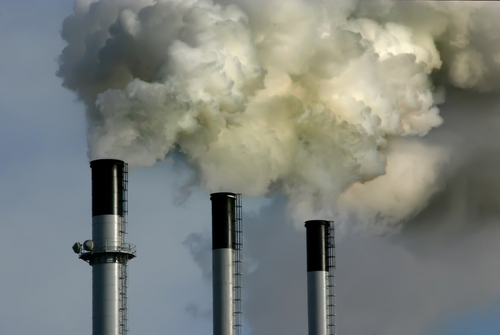A state court has tossed aside regulations that would have enrolled Pennsylvania in a multistate carbon-cutting program, regulations that were a climate-change priority for the former administration of Gov. Tom Wolf.
- At issue was whether the heart of the program — a market in which companies must buy credits to emit carbon — represented a fee or a tax.
- Commonwealth Court ruled yesterday in two cases — one brought by legislators and one by energy companies and unions — that the requirement is a tax.
- As a result, the court voided the regulations, which have been controversial since they were first proposed by state regulators in late 2020.
Why: Republican lawmakers have argued that the rules represent an executive end-run around the Legislature and its power to set taxes.
- Labor unions, meanwhile, have been concerned about the potential loss of jobs in the energy industry.
- However, environmentalists see the carbon-trading program as a crucial part of blunting the impact of climate change, which scientists say is leading to more severe storms and higher average temperatures.
- The multistate program is known as the Regional Greenhouse Gas Initiative, or RGGI. Participants include Connecticut, Delaware, Maine, Maryland, Massachusetts, New Hampshire, New Jersey, New York, Rhode Island and Vermont.
- Virginia joined the program in 2021 but Gov. Glenn Youngkin withdrew the state after he took office in early 2022. Environmentalists are challenging his decision in court.
- In Pennsylvania, the program would generally seek carbon reductions from the state’s largest coal-fired power plants over a period of about 10 years.
How: By conducting annual auctions in which plant operators must buy credits from the state for each ton of carbon they emit while reducing the number of credits available each year, thereby lowering carbon emissions over time
- Companies can sell their credits to others if they end up emitting less carbon than they have credits for.
- The auctions were expected to bring in hundreds of millions of dollars to a state fund investing in renewable energy and energy efficiency, as well as in efforts to help communities hurt by declining coal use.
- Commonwealth Court, however, ruled that the auction revenue — more than $443 million in the first year — far exceeded the state’s cost of administering the RGGI program, thereby indicating that the rules impose a tax rather than a fee.
- Because the tax was not approved by the legislature, it is unconstitutional, Judge Michael Wojcik wrote in an opinion backed by three other judges.
- The rulings to throw out the rules follow an earlier decision to stay them while the legal battle played out.
Was it unanimous: No.
- Judge Ellen Ceisler penned a dissent in which she said “there are genuine issues of material fact at this stage” as to whether the regulation imposes a fee or a tax.
- “Based upon the record before us, it does not seem that the emissions allowance auction process would impose what could be deemed fees in the traditional sense, but, by the same token, it is not entirely clear that the proceeds raised thereby would constitute a tax,” she wrote
What’s the reaction: Republican lawmakers cheered the ruling, while Democrats focused on the need for action on climate change.
- “The unlawful entrance into RGGI by the prior administration was a slap in the face to Pennsylvanians who continue to deal with rising energy prices and increasing inflation. Today’s decision by the Commonwealth Court is a positive development in ensuring that RGGI will not add to increasing energy costs on Pennsylvania families,” House Republican Leader Bryan Cutler, a Lancaster Republican, said in a statement.
- His Democratic counterpart, state Rep. Matt Bradford, said in a statement that legislative action would be preferable to an executive rulemaking.
- But despite the existential threat of climate change, political consensus has been elusive, he said. “The court’s ruling today and the appeals that will almost certainly follow cannot be an excuse for further inaction. Our children and their children will be the judge of whether we heed this call.”
What’s next: The administration of Gov. Josh Shapiro could appeal the decision to the state Supreme Court.
- But it is not clear whether that is in the offing.
- Shapiro spokesperson Manuel Bonder said the administration “is carefully reviewing the Commonwealth Court’s decision as we evaluate next steps.”
- “This decision is solely focused on the narrow question of whether this policy put in place by the prior administration constitutes a tax or a fee,” Bonder said. “Gov. Shapiro remains focused on addressing climate change, reducing emissions and protecting public health while creating jobs and protecting consumers.”
- A Shapiro-appointed task force stopped short of endorsing RGGI earlier this year, though it said the RGGI rules met the governor’s criteria for a carbon-reduction program.
- “The qestion is, Is he going to continue this appeal and fight for RGGI or is he going to do something else? And we don’t know what that other thing is,” said Rob Altenburg, senior director for energy and climate at PennFuture, an environmental group in Harrisburg.








